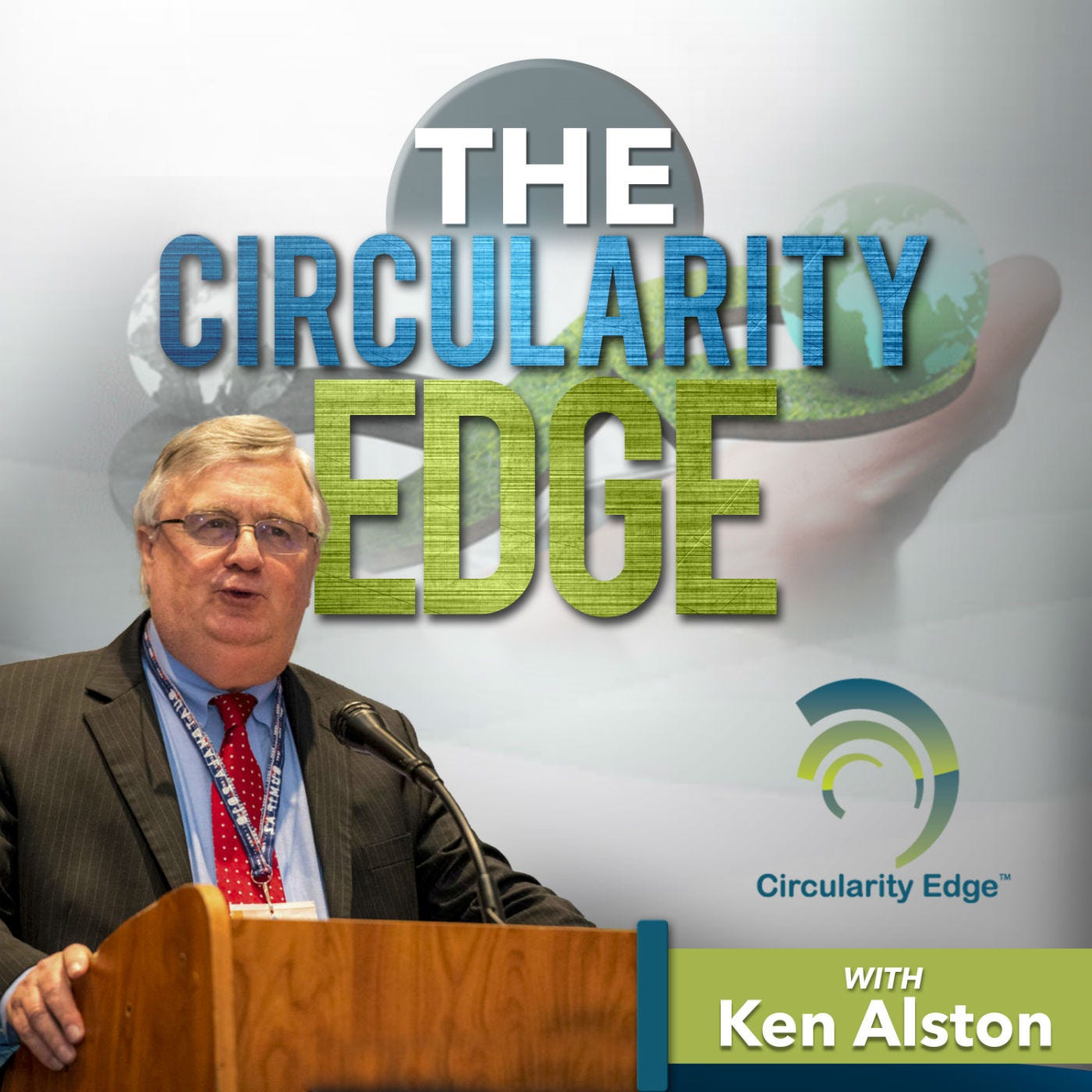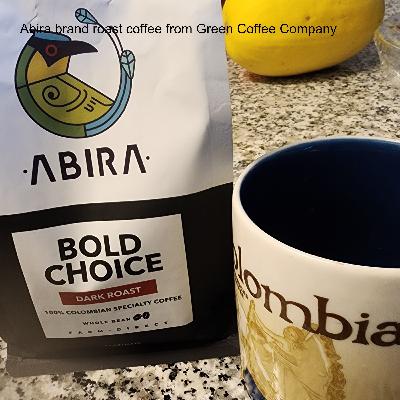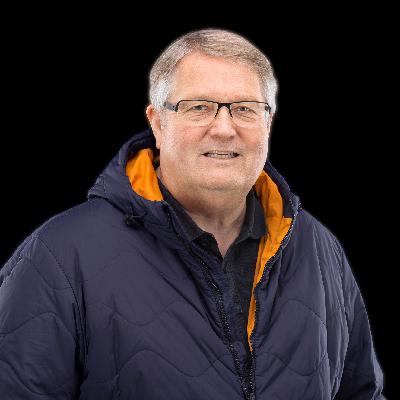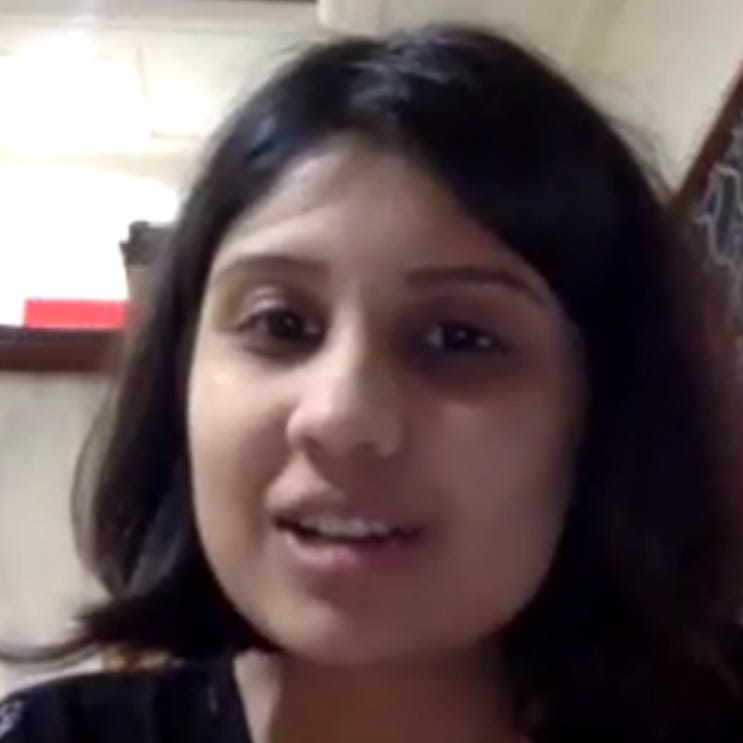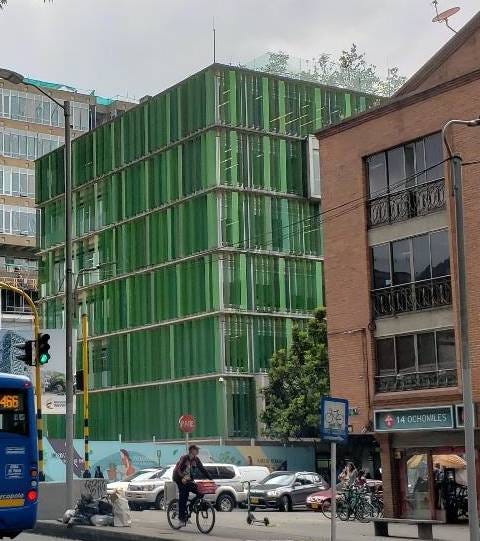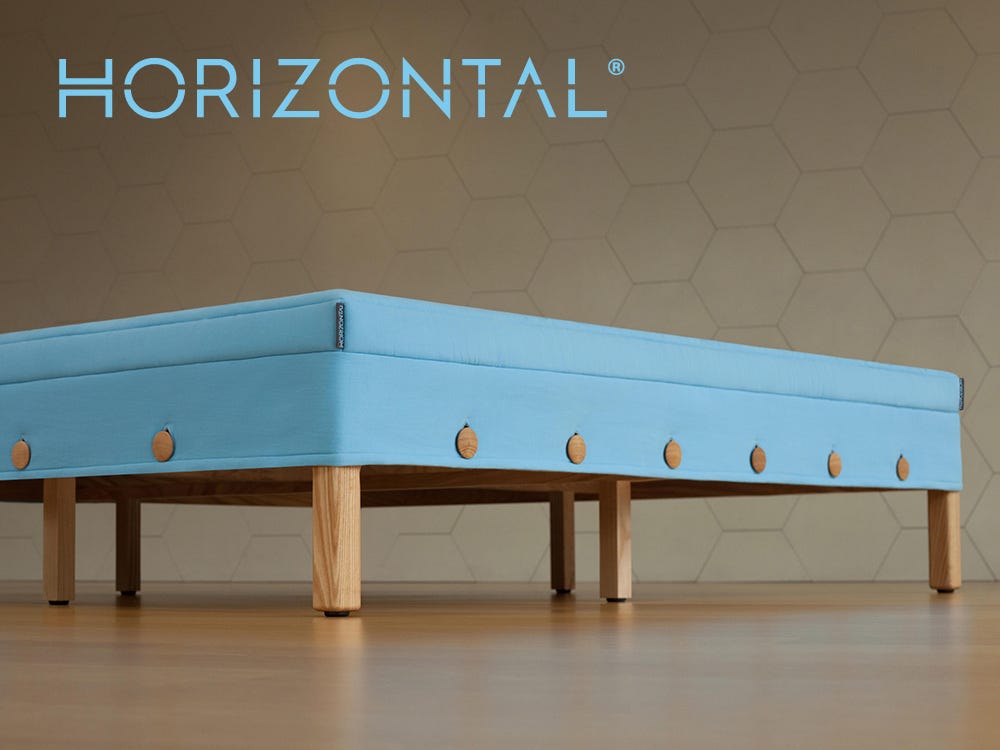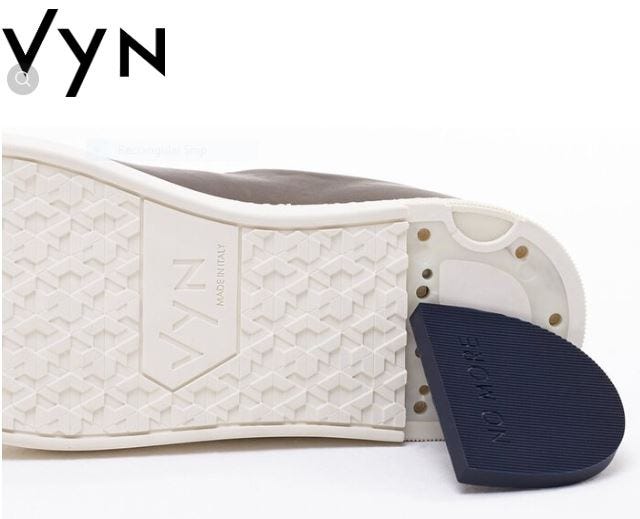Discover The Circularity Edge With Ken Alston
The Circularity Edge With Ken Alston

The Circularity Edge With Ken Alston
Author: Ken Alston
Subscribed: 4Played: 37Subscribe
Share
© Ken Alston
Description
Where we discuss issues and perspectives on Business Sustainability and what we now call the Circular Economy..
kenalston.substack.com
kenalston.substack.com
36 Episodes
Reverse
Join Ken Alston on the Circularity Catalyst podcast as he delves into Aly Khalifa’s inspiring journey from a college project on Styrofoam to leading sustainable innovations. Discover how Aly’s inventive culture and actionable insights are shaping a better future. ✅ Subscribe To The Circuarity Catalyst Channel For More Videos: ✅ Contact Ken if you ahve a sustainability story to share on the Circularity Catalyst podcast.✅ Get your free Sustainable Circularity Diagnostic HERE. Get full access to SUSTAINABILITY MATTERS at kenalston.substack.com/subscribe
In the world of sports fandom, loyalty isn't just measured by cheers and game attendance—it's increasingly gauged by the latest team gear adorning fans' closets. But as teams constantly unveil new "looks" and limited-edition merchandise, we're faced with a growing problem: the unsustainable cycle of sports apparel purchase and use.The Annual Uniform CarouselEvery year, professional and college sports teams introduce new uniforms, "alternate" jerseys, and special edition gear. While the excitement of a fresh look can be thrilling for fans, it comes at a significant environmental cost. Consider this:* Resource Consumption: Each new jersey, hat, or t-shirt requires raw materials, water, and energy to produce.* Short Lifespan: Last year's "must-have" item quickly becomes outdated, often worn only a few times before being relegated to the back of the closet.* Waste Generation: As fans update their wardrobes, older items often end up in landfills, contributing to textile waste.A Question for You: Take a moment to reflect on your own closet. How many team t-shirts and sweatshirts do you have right now that you don't use anymore? The answer might surprise you—and it's a tangible example of the issue we're discussing.The Hidden Costs of FandomThe push for new merchandise isn't just about team pride—it's a massive industry. The global licensed sports merchandise market size was valued at USD 33.48 billion in 2022 and is expected to expand at a compound annual growth rate (CAGR) of 4.9% from 2023 to 2030.This growth rate might seem modest at first glance, but it's important to understand the compounding effect. A 4.9% annual growth means that the market is expected to increase by nearly 50% by 2030. This rapid expansion translates directly into more resources used, more energy consumed, and potentially more waste generated. Each percentage point of growth represents millions of additional items produced, worn briefly, and potentially discarded.The environmental impact of this growth is not linear—it's exponential. As production scales up to meet demand, so too does the strain on our natural resources and waste management systems. This compounding effect accelerates the unsustainable outcomes we're already witnessing in the sports merchandise industry.But this constant turnover comes with other hidden costs:* Environmental Impact: The textile industry is one of the largest polluters globally. The production of sports merchandise contributes to this problem through water pollution, chemical use, and carbon emissions.* Labor Concerns: Fast fashion practices in sports apparel can lead to poor working conditions and low wages for workers in manufacturing countries.* Financial Strain on Fans: The pressure to buy new gear each season can be a significant financial burden, especially for dedicated fans who feel compelled to keep up.Breaking the CycleSo, what can be done to make sports merchandising more sustainable?* Timeless Designs: Teams could focus on classic, enduring designs that don't go out of style after one season.* Sustainable Materials: Using recycled fabrics or more environmentally friendly materials could reduce the impact of production.* Repair and Upcycling Programs: Teams could offer services to repair or update old merchandise, extending its life.* Fan Initiative: Supporters can take a stand by choosing to wear "vintage" gear proudly, resisting the urge to buy every new release.The Future of FandomAs we become more aware of the environmental challenges we face, it's time for sports culture to evolve. True team loyalty isn't about having the latest gear—it's about supporting your team through thick and thin, regardless of what you're wearing.By pushing for more sustainable practices in sports merchandising, fans can send a powerful message: we love our teams, but we love our planet too. TELL YOUR TEAM: It's time for "fast football" (and all other sports) fashion merchandise to slow down and for teams to score points for sustainability.SUSTAINABILITY MATTERS is a reader-supported publication. To receive new posts and support my work, consider becoming a free or paid subscriber.Source: Grand View Research - Licensed Sports Merchandise Market ReportStart writing today. Use the button below to create a Substack of your own Get full access to SUSTAINABILITY MATTERS at kenalston.substack.com/subscribe
In today's episode, Ken Alston talks with Mahasen Gunawardena, a.k.a. "Lanks" who is co-founder of Sustain Credits.Remove your carbon & nature footprint through Earth Doctors -> buy trees, remove waste, improve biodiversity, protect animals - visit the SUstaina Credits website and find out about their monthly plans: https://sustaincredits.com/plans To join the movement as an Earth Doctor and get rewarded: https://sustaincredits.com/earthdoctor 1️⃣ heal the earth ➕🌐2️⃣ send photos, videos with exact location to @sustaincredits 📸📍3️⃣ collect sustain credits 🏁🎖️ Let's heal the world together! Get full access to SUSTAINABILITY MATTERS at kenalston.substack.com/subscribe
As co-founder of the Bank & Vogue family of companies, Steven Bethell has been a thought leader and pioneer in the post-consumer textile space for over 20 years.Unwanted garments across the world normally make their way to landfill - Bank & Vogue is here with the purpose to develop innovative and relevant solutions for the "Crisis of Stuff".Every month the ompany receives 300 containers of old clothes. Sellable items are sent to Beyond Retro whilst Beyond Remade brings new life to old things - closing the loop.After listening to the podcast, join Steven and product management team Hugo Harris and Padmini PV and sign up for free with Waterbear to watch the documentary “Behind the Scenes of Circularity – The Secondhand Superstar” Other links to Steven's world:https://www.beyondretro.com/https://www.beyondremade.com/https://bvhservices.com/https://www.bankvogue.com/======================================= Get full access to SUSTAINABILITY MATTERS at kenalston.substack.com/subscribe
In this episode, Rob Oomen is my guest. Rob is the Director General of Vytal, Mexico.He recently introduced the Vytal reusable food and drink container system in Guadalajara, Mexico. 2023 is primed for expanding this important reusable container system in restaurants, company, and university cafeterias.Already successful in Germany, this is the first use of this type of reusable container system in Mexico. Vytal Mexico Get full access to SUSTAINABILITY MATTERS at kenalston.substack.com/subscribe
Today I am talking with Tricia Carey, Chief Commercial Officer of Renewcell.Tricia held various commercial management positions at Lenzing Fibers to establish the TENCEL™ brand, build mill partners and set retailer specifications. Tricia is an advocate for innovation and circularity in the textile and apparel industry. She recently joined Renewcell to accelerate the commercial development of Circulose®, making fashion circular.Founded by innovators from Stockholm’s KTH Royal Institute of Technology in 2012, Re:NewCell AB (‘Renewcell’) is a multi-award-winning sustaintech company based in Sweden. The company’s vision is to make fashion circular.Through its patented process, Renewcell is able to recycle cellulosic textile waste, such as worn-out cotton clothes and production scraps, transforming it into a pristine new material called Circulose®.It's good to see companies helping to fill the gaps in the reverse logistics needed to implement a sustainable circular economy. Connect with Tricia: Tricia Carey | LinkedInAdditional company links:renewcell.com I linkedin.com/renewcellcirculo.se I instagram.com/circulose Get full access to SUSTAINABILITY MATTERS at kenalston.substack.com/subscribe
Five years ago, I went into the high Andes to pick coffee cherries and experience for myself the processes that are needed before we get that delicious taste of coffee in the morning.In this podcast episode I welcome Josh Ziegelbaum, Director of Investor Relations for Legacy Group to talk about a new roasted coffee brand called Abira, recently launched in the USA. Listen in as we talk about the sustainably circular business practices that Green Coffee Company (GCC) is pioneering in Colombia.Currently in a $100 Million Series C funding round, anticipating an 11X return on investment, GCC practices digital agronomy, has a very large tree planting program, is innovating with social, personal and professional advancement services for employees that significantly exceed norms in the industry.In addition to planning its own U.S. based roastery, GCC also has plans to reutilize coffee waste to produce a whole new, value-added product stream making alcohol.People often ask me how to contribute to a more sustainably circular world. One important way is to apply your own personal discretionary spending to brands and companies who are 'doing the right thing'.I've switched my coffee purchases from a well-known maker of brewing machines and single brew disposable plastic pods to support this new Abira brand from Green Coffee Company in Colombia demonstrating more sustaining economic, environmental and social practices.Below is the Abira coffee website link and promotional codes for Circularity Edge podcast listeners to buy coffee in the USA. Vote with your purchases and show companies that "We Prefer More Sustaining Brands"!https://abiracoffee.comDiscount codes at checkout:ABIRABUY1GET1 - For individual purchasesFIRST3FREE - For subscribers to an auto-ship planLegacy Group contact information is:https://legacy-group.co/investor.relations@legacy-group.coNote: This podcast is NOT an endorsement or solicitation to invest. Any forward-looking statements made are not guarantees of performance or results. Listeners are encouraged to do their own due diligence before considering any investments. Get full access to SUSTAINABILITY MATTERS at kenalston.substack.com/subscribe
Here's my recent conversation with long-time friend and fellow Cradle to Cradle design practitioner, Albin Kaelin.I've known Albin for over 22 years. His story starts with the Genesis of the Cradle to Cradle design collaboration of William McDonough and Dr. Michael Braungart. Namely, creating the Climatex Lifecycle textile that confounded the Swiss water authorities because they could not find any trace of pollution in the factory wastewater.Albin talks about his journey as CEO of a small Swiss textile mill reinventing his core products to become more sustainably circular, through to his award-winning role today as CEO of EPEA Switzerland.Albin's work is ever practical, grounded in business reality, and completely focused on creating what he calls Networks of Trust to reinvent supply chains so that sustainable circularity can be enabled.About Albin Kaelin - in his own words:"I'm actually left-handed. When I got to school, I was forced to write on the right. Back then I asked why, but I didn't get an answer. This experience has taught me not to accept anything whose sense I do not understand. I want to shape my life so that it makes sense for me and for the community. In doing it becomes visual how I take responsibility. I work professionally to enable innovations to develop new concepts of production that no longer produce waste, but become 'nutrients' for other products. I find my track of interface, where I am neither saying yes nor no and I am confident to bare my responsibility."Website: www.epeaswitzerland.com Get full access to SUSTAINABILITY MATTERS at kenalston.substack.com/subscribe
Catherine Roggero-Lovisi is CEO of Modern Meadows.The Modern Meadows website states: "Where Natural Inspiration Meets Extraordinary innovation". The company describes themselves as a purpose-driven, protein application powerhouse - building the sustainable bioeconomy.Catherine and Ken talk about the company's protein-based products and how they are intentionally designed with both performance and sustainability in mind from the outset.Catherine discusses the positive impacts and scalability of their products as well as the key business drivers that are inexorably moving employees, shareholders, insurance companies, governments and even customers to demand more sustainable solutions.Importantly, the potential for local production can help reduce transport distances and contribute to lower Greenhouse Gas emissions.More information at Modern Meadow websiteEverlane's "Alt-Leather". Get full access to SUSTAINABILITY MATTERS at kenalston.substack.com/subscribe
In this episode Ken Alston brings the story of "From Belo" up to date. First shared here in July 2021, Belo bags is a sustainable circular economy success story in progress.Today Ken talks again with Co-founder Maria Costa about the growth and recognition that From Belo is now garnering.From a small start-up in Belo Horizonte, Brazil as a new brand celebrating ethical craftsmanship, circular practices and a strong social connection, From Belo is now being showcased in one of the top retail stores in London, England.BELO - Selfridges | Shop Online Get full access to SUSTAINABILITY MATTERS at kenalston.substack.com/subscribe
Podcast discussion with Wajahat Hussain, Founder/CEO AT Biorestore.Biorestore is a new laundry solution that restores used and worn clothing to new.This is a new way to extend the use period of cotton garments and so help to reduce the negative impacts of fashion on the environment by enabling use over a longer time period. For more information: https://bio-restore.com/ Get full access to SUSTAINABILITY MATTERS at kenalston.substack.com/subscribe
Shikha Rathi is an enterprising one-woman solopreneur making a difference in the local community in Pune, India.Her business is called The Reup Studio.Shikha takes wastes from the Indian textile industry and turns them into one of a kind garments.As the waste offcuts are always different shapes and sizes, by necessity this requires Shikha to be creative in how her clothing is put together to achieve a similar look and feel.She is especially proud of her team of expert local artisans who sew the garments because each item is a new and different pattern!Shikha represents the HOPE that I see as individuals effectively rebel against the status quo of the wastefulness of so-called 'fast fashion'.Follow Shikha on Instagram and on LinkedIn. When she announces the launch of her new website I hope you will support her with your wallets and purses open!This is one of the ways we start to create a sustainable, circular economy. Eliminating the concept of waste locally and creating new, additional economic value.Value for the company who's waste Shaika PURCHASES.Value for the artisans who are EMPLOYED to sew garmentsValue for the local community with additional REVENUE generated in the city Value for Shikha when you BUY from her Reup Studio.Congratulations Shikha for your entrepreneurship and for bringing your VALUES to your work providing multiple benefits by first THINKING, then TAKING ACTION with sustainability and circular economy principles in mind.For more on Ken Alston's thinking, writing and speaking appearances go to:CIRCULAR ECONOMY.EXPERT Get full access to SUSTAINABILITY MATTERS at kenalston.substack.com/subscribe
Part 2 of Ken Alston in conversation with David Ferninand.This recording was made on December 11th, 2021 to coincide with David's "Quantum Pay It Forward" event and the recording of his Biodome film on the island of Ilha das Couves, Sao Sebastiao, Brazil. Note: Ken's conversations with David cover a diverse range of topics!In this episode they talk about David's Quantum Giving event and the coincidence of recording on the 90th birthday of OSHO (the Enlightened Mystic of 21st century) and of various topics from OSHO's book "The Book of Secrets". Open yourself up to personal growth opportunities with meditation and new subjects like the theory of Nothing - Point 0,0 Absolute.theory of nothingContact David on Ilha das Couves, Sao Sebastiao on Facebook or WhatsApp (Brasil) +55 12997315251 Get full access to SUSTAINABILITY MATTERS at kenalston.substack.com/subscribe
Ken Alston in conversation with Michiel Doorn, co-founder of Circularity Edge about Michiel's new report on the Circular Economy.Michiel talks about why he decided to write this report and reveals some of the pitfalls about creating a sustainable, circular economy based on recent work he's carried out at Circularity Edge. Download Michiel's new report --> HERE. Get full access to SUSTAINABILITY MATTERS at kenalston.substack.com/subscribe
A recent connection to David Ferdinand led to recording this conversation. David is an American citizen living on an island off the coast of Brazil near to São Sebastião, São Paulo.Our conversation covers a range of issues related to susctainability, circular economy and life in general.I like islands as a geographically constrained model for thinking about the input and output of materials in the "system" of the island.The story of David the Indian which we talk about is one worth listening to. I can relate to it and see in the parable a connection to what we face with the concepts of a sustainable, circular economy.We have the fog of unsustainability in a complex world right in front of us which we have to step into with faith that we will come out the other side with new clarity, wisdom and a belief in our abilities to solve the challenges we face.David is a fascinating individual! Enjoy our conversation.To listen to the story of "David The Indian" go to: www.kryon.comLook for the "Free audio" (mid screen)Find the section "Parables" (bottom)Find Track 4Story 2Time code for start of story is somewhere close to: 20:17 -29:00For more on David and 'Ilha das Couves': www.eportbrasil.comhttps://www.facebook.com/ilhadascouvesDavid's FacebookFor more information on The Circular Economy Forum of the Americas 2012 edition go to: CEFA2021 Get full access to SUSTAINABILITY MATTERS at kenalston.substack.com/subscribe
It’s the eve of the 20-year anniversary of the 9-11-2001 terrorist attacks as I publish this short episode.Today, as then, I’d normally I’d be thinking and working on matters relating to how we can change the way the global economy operates so that it creates positive, beneficial economic, environmental and social outcomes, in place of the many un-sustainable outcomes we still generate today.But today (9/10/21) and tomorrow (9/11/21) space needs to be made for somber reflection on the attack on the United States that, in its own way, changed how the world works and lives.In this podcast I recall my personal experience of the morning of 9-11-2001 and reflect on death as a part of Nature's life cycle and of the lives tragically cut short on that day and in the following days. I'm a cautiously optimistic person and I see hope in the future as individually and collectively we strive to leave the world a better place for having lived here on Earth.Please consider a donation to The Never Forget Fund, the Flight 93 Memorial and The National 9/11 Pentagon Memorial.If you wish to follow my work and engage with me, please "FOLLOW" my podcast and visit The Circular Academy. Get full access to SUSTAINABILITY MATTERS at kenalston.substack.com/subscribe
Hi, Today I'm talking with Maria Costa of From Belo in Belo Horizonte, Brazil. I'm excited to bring you this episode as Maria and her colleagues are woderful ambassadors for what's possible when you take your VALUES and create VALUE - social, environmental and economic intentionally, by design.For those of you who don’t know From Belo – they create long lasting, beautiful fashion accessories that carry kindness in every seam. As you will hear they address the biggest issues in their community in Belo Horizonte, Brazil; namely, waste and poverty. They turn trash into on-trend, yet timeless items that celebrate ethical craftsmanship.I invite you to connect with Maria, buy their bags and suppport their fantastic artisan craftsmen and women!!Website: www.frombelo.comInstagram: @frombelo_ Linkedin: https://www.linkedin.com/company/frombeloMaria’s Linkedin: www.linkedin.com/in/mariaelisadacosta Get full access to SUSTAINABILITY MATTERS at kenalston.substack.com/subscribe
The new builing at Universidad EAN in Bogota, Colombia is arguably Colombia's most sustaining building to date! Listen to my interview with Jose Alejandro Martinez Sepulveda. Jose is a long-time friend and colleague of mine. He is the strategic development advisor for Sustainability coordination at Universidad EAN in Bogota, Colombia. The combination of leadership and a vision in the University allied to a terrific team of people who led the conceptulatization, development, planning and construction. This is an inspiring story of what can be done, even against the backdrop of budget constraints and the fact that this is being done in a country not previously known for "firsts" in sustainable construction. For more on the EAN University Legacy building please go here: For more on the ICEHouse(TM) go here. Get full access to SUSTAINABILITY MATTERS at kenalston.substack.com/subscribe
This week I enjoyed a restful conversation about beds with fellow ex-Brit Len Laycock who is now based in Vancouver, Canada. Len is the designer of the new Horizontal Bed which boasts several unique design differences to conventional beds. The Horizontal bed is is durable, long lasting and has replaceable parts to extend it's USE even further. Materials are chosen with care to ensure they are safe in use and can cycle safely after use. Listen now as Len explains all about the features and benefits of this new bed and how it was conceived following the design principles of a circular economy. Read more about Len and Horizontal beds at Horizontal.eco Get full access to SUSTAINABILITY MATTERS at kenalston.substack.com/subscribe
Join me in conversation with Stefan Mathys of Vyn as we discuss the evolution of thinking and design of a new sneaker that is made to last and is arguably the first repairable sneaker brand.This is an inside look at a new entrepreneurial venture with the intention to become increasingly sustainable and circular, by design.Our talk was recorded just a few weeks before the first invitation goes out to the public to become one of the first "VYNNERS" to own this innovative sneaker.VYN was founded by Catherine Meuter and Stefan Mathys in 2019. You can find out more on their VYN WEBSITE.VYN is also on Facebook & Instagram: @vyn.one.sneakers Get full access to SUSTAINABILITY MATTERS at kenalston.substack.com/subscribe


